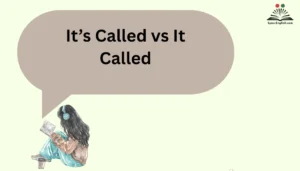Language can be tricky, especially when it comes to words that sound the same but serve different purposes. “Since” vs “sense” are two such words that often confuse people. Whether you’re a seasoned writer or someone looking to improve your grammar, understanding when to use “since” vs “sense” will sharpen your writing and communication. Though they may sound alike, they serve distinct roles in a sentence and convey entirely different meanings.
In this article, we’ll dive deep into each word, explaining their uses in various contexts. From time references to perception, we’ll explore everything you need to know to make sure you’re using “since” and “sense” correctly. We’ll also provide plenty of examples to make things clearer. By the end of this post, you’ll not only know how to use each word properly, but you’ll also have a deeper understanding of their nuances in language. So, let’s clear up the confusion and master these two words once and for all.
Defining “Since” and “Sense”
Before diving into the different ways “since” and “sense” can be used, it’s essential to understand their basic definitions.
- Since: This word is a versatile one, often used as a conjunction, preposition, or adverb. It can indicate a point in time (e.g., “since 2005”) or serve as a reason (e.g., “Since you’re here, let’s talk”).
- Sense: While “sense” can be a noun or a verb, its meanings revolve around perception, understanding, or logical reasoning. As a noun, it can refer to any of the five senses (sight, hearing, touch, taste, and smell) or a feeling of awareness. As a verb, it means to detect or perceive something.
Now that we know what each word generally means, let’s break them down further.
Since in Detail: Different Roles in the Sentence
As a Conjunction
When “since” is used as a conjunction, it connects two clauses by indicating time or reason. The meaning of “since” as a conjunction typically involves a cause-effect relationship or a time reference.
- Example 1 (Time-based): “I’ve been working here since 2010.”
- Example 2 (Reason-based): “We should leave now, since it’s getting late.”
As a Preposition
As a preposition, “since” is used to point to a specific moment in time that marks the beginning of an action or event. It’s usually followed by a noun, like a date or a period.
- Example 1: “She has lived in New York since last summer.”
- Example 2: “The company has been in business since 1985.”
As an Adverb
When “since” is used as an adverb, it refers to an event or time that happened previously. It often describes a change from a previous time to the present.
- Example: “She hasn’t been the same since the accident.”
Sense in Detail: Different Roles in the Sentence
As a Noun
As a noun, “sense” can refer to one of the physical senses (like sight, smell, etc.), or it can refer to a deeper understanding or awareness of something.
- Example 1 (Physical Sense): “The sharp odor in the kitchen hurt my sense of smell.”
- Example 2 (Understanding): “It doesn’t make any sense to go out in the rain.”
As a Verb
When used as a verb, “sense” means to detect or perceive something, often through intuition or a deep understanding.
- Example: “I sensed that she was upset before she said anything.”
Since vs Sense: Understanding the Key Differences
The key difference between “since” and “sense” lies in their usage and meanings.
- Since is primarily used to indicate time or a reason. It refers to a point in time or an event that happened in the past that continues into the present or provides justification for an action.
- Sense, on the other hand, is used when discussing perception, understanding, or logic. It relates to how we feel, think, or understand the world around us.
Here’s a simple way to remember:
- Since deals with time or reason (i.e., when something happened or why something is happening).
- Sense relates to perception or understanding (i.e., how we experience the world or make decisions).
Putting it into Practice: Makes Sense or Since?
Now that we understand their definitions and differences, let’s take a look at how to correctly use “since” and “sense” in everyday situations.
Makes Sense or Since?
- Correct: “It makes sense to save money for a rainy day.”
- Explanation: Here, “makes sense” refers to logical understanding. It’s used when something is reasonable or rational.
- Incorrect: “It makes since to save money for a rainy day.”
- Explanation: This is incorrect because “since” doesn’t fit the meaning of logical reasoning or understanding.
Since in Time-Based Usage
- Correct: “I’ve been waiting since 3 p.m.”
- Explanation: “Since” is used to mark a specific time when the waiting began.
- Incorrect: “I’ve been waiting sense 3 p.m.”
- Explanation: “Sense” cannot be used in this context, as it refers to perception, not a time marker.
Sense in Meaning-Based Usage
- Correct: “Her words didn’t make any sense.”
- Explanation: “Sense” refers to the logical meaning of something.
- Incorrect: “Her words didn’t make any since.”
- Explanation: “Since” doesn’t fit here, as it’s not related to meaning or understanding.
Examples in Context
Let’s dive into some real-world examples where you can see the use of “since” and “sense” in action.
Since (Time and Reason)
Time-Based Usage:
- “We’ve been married since 2005.”
- “The store has been open since noon.”
Reason-Based Usage:
- “Since you’re busy, I’ll handle it.”
- “She didn’t come to work since she was sick.”
Sense (Understanding and Feelings)
Perception-Based Usage:
- “I sense a change in the air.”
- “She sensed that something was wrong before anyone said anything.”
Meaning-Based Usage:
- “This theory makes sense to me.”
- “It doesn’t make sense to argue over something so trivial.”
Words You Can Use in Place of “Since” and “Sense”
Both “since” and “sense” have synonyms or alternative phrases you can use depending on the context.
Since Alternatives
When Indicating Time:
- From: “She has been here from 9 a.m.”
- After: “We left after the meeting.”
When Indicating Reason:
- Because: “We should leave because it’s getting late.”
- As: “We stayed home as it was raining.”
Sense Alternatives
When Referring to Perception or Feeling:
- Perception: “My perception of the event changed after hearing more details.”
- Intuition: “He had a strong intuition about the situation.”
When Referring to Meaning or Understanding:
- Understanding: “The explanation lacked understanding.”
- Logic: “His argument was based on faulty logic.”
Origins of “Since” and “Sense”
Understanding the origins of words can help deepen your understanding of their meanings and usage.
- Since: The word “since” comes from the Old English “siththan,” meaning “after,” “from,” or “since.” It’s been used to refer to time for centuries, emphasizing the passage of time or a starting point.
- Sense: The word “sense” comes from the Latin “sensus,” meaning “feeling” or “perception.” It evolved to include meanings related to understanding and logic, which explains its wide use in both everyday language and formal contexts.
A Final Look
In conclusion, mastering the distinction between “since” and “sense” is essential for clearer and more effective communication. Remember:
- Since is used for time or reason.
- Sense refers to perception, understanding, or meaning.
By keeping these definitions and examples in mind, you’ll improve your ability to communicate more effectively, whether in writing or conversation. So next time you’re unsure whether to use “since” or “sense,” you can confidently make the right choice.
Call to Action: Do you have any questions or need more examples? Feel free to drop a comment below and share your thoughts!

Emma Brooke is a passionate English educator, writer, and language enthusiast with over a decade of experience helping learners master the nuances of the English language. At SynoEnglish, she blends practical grammar advice with real-world communication tips to make English easier, clearer, and more enjoyable for readers of all levels.



